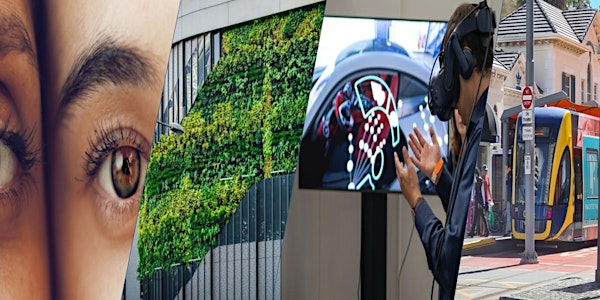
Faculty of Society & Design Showcase
The Faculty will be showcasing the research being undertaken in key fields.
Date and time
Location
Bond University
University Drive Gold Coast, 4229 AustraliaAbout this event
Faculty of Society & Design showcase
The post-occupancy dilemma in green-rated buildings - A gap analysis
(Presenter: Professor Martin Skitmore)
4pm to 4.30pm
Brief Abstract: The traditional construction industry has a significant and far-reaching impact on the environment, economy, and society. Green-certified buildings, with LEED, BREEAM, DGNB, or other certifications during the design stage, have great potential for increasing the effective use of resources and energy, reducing pollution, etc., and so their number has increased greatly in recent years. The post-occupancy evaluation (POE) of green buildings involves assessing whether they meet expected performance during the in-use phase. However, there is a lack of reviews of POE research and analysis of reasons for actual performance gaps. In response, this presentation provides a suitable research framework for the POE of green buildings from which the actual performance gaps of various POE green-certified projects are summarized, the reasons for failures analyzed, and potential solutions proposed.
Evaluation of transportation infrastructure: a case study of Gold Coast Light Rail Stage 1&2
(Professor Craig Langston)
4.30pm to 5pm
Brief Abstract: Commonwealth and State governments in Australia are engaged in unprecedented fiscal stimulus to encourage rapid economic recovery from the COVID-19 pandemic. Transportation projects are popular forms of infrastructure that can improve living standards, industry productivity, tourism and safety. They can create a legacy through the provision of vital services while putting upward pressure on employment and creating increased consumer confidence and spending. The problem with stimulus is making sure that the quality of the new infrastructure provides collective utility to a community or region. Understanding the benefits requires financial, social, ethical and environmental consequences to be evaluated in a comparable format.
The aim in this presentation is to analyse the Gold Coast Light Rail (GCLR) Stage 1&2 project using a method that is capable of merging tangible and intangible criteria using an ordinal ranking algorithm. This process needs to both predict and validate actual performance in terms of project success and ensure that envisaged benefits during design are realised in operation. The i3d3 model developed at our Centre for Comparative Construction Research is used as the basis for determining the level of success that this megaproject is delivering to the Gold Coast community.
Virtual Reality and Psychophysiology in spatial cognition
(Presenter: Doctor Victor Schnazi)
5pm to 5.30pm
Brief Abstract: Recent advances in Virtual Reality (VR) offer flexible and exciting ways to explore the psychophysiological correlates of spatial behaviour. However, developing experiments in VR can be time consuming and require advanced programming skills. In this talk, I will showcase a novel framework (EVE: Experiment in Virtual Reality) that can be used to assist researchers with the design, implementation, and evaluation of experiments in VR. Critically, I will present three experiments that have successfully used the EVE framework for recording psychophysiological data (e.g., blood pressure, electrodermal activity and heart rate) in environmental perception and navigation research. The first study highlights the way neighbourhoods with different socio-economic status influence emotional and physiological reactivity. The second experiment shows how gender differences in wayfinding disappear when navigating under stress. In the third experiment, I will present new evidence that adaptive signs are capable of guiding users to a safe exit during fire evacuation in a virtual museum. I will conclude the presentation by highlighting some of the additional data management and analysis functions of the EVE framework.
In a Dangerous World, does it help to be Dangerous?
(Presenter: Katarina Fritzon)
5.30pm-6pm
Brief Abstract: This presentation discusses the so-called Dark Triad of personality and their apparent association with certain adaptive or positive outcomes for individuals who possess such traits. Literature has identified links between psychopathy, narcissism and Machiavellianism with leadership emergence, greater number of sexual partners, and creative problem solving. From an evolutionary theory perspective, individuals make trade-offs in energy allocations toward different life tasks, including parenting investment and relationship effort. In relatively predictable environments with low mortality risks, the vast majority of humans adopt a slow life history strategy, whereas fast strategies typically arise in environments where risk of mortality is high and resource availability is unpredictable. The presentation will describe the results of recent research undertaken during the COVID-19 pandemic to investigate whether individuals with dark triad personality traits are more likely to engage in ‘competitive’ behaviours consistent with a fast life strategy and supporting the theory that dark triad personality traits represent an evolutionary adaptation of humans that is associated with increased survival potential under certain conditions.
Face recognition in the lab and at the airport
(Presenter: Professor Mike Burton)
6-6:30pm
Brief Abstract: We are very good at recognising the people we know, but much poorer with the faces of strangers. This is a problem for people needing to check identity – for example, retail staff viewing photo-ID or border staff examining passports. I will describe some experiments comparing familiar and unfamiliar face recognition and outline some of the steps taken by professional bodies to address our fallible perception. I hope to demonstrate that psychologists can provide useful findings for professionals, but also (critically) that thinking about real-world problems leads to a better understanding of the basics of human perception.
In light of possible continuing changes in directives from Government and Heath authorities, this event is subject to change, cancellation and re-scheduling. If changes are made to the event, the University will attempt to provide 3 days’ notice. If the event is unable to be held in-person, a virtual event may still proceed if the nature and format of the event is able to be replicated in purpose and substance over the internet. It is acknowledged that some invitees may not be able to attend due to lockdown and travel restrictions. In such cases, the University means no offence, rather the invitation is one of courtesy.